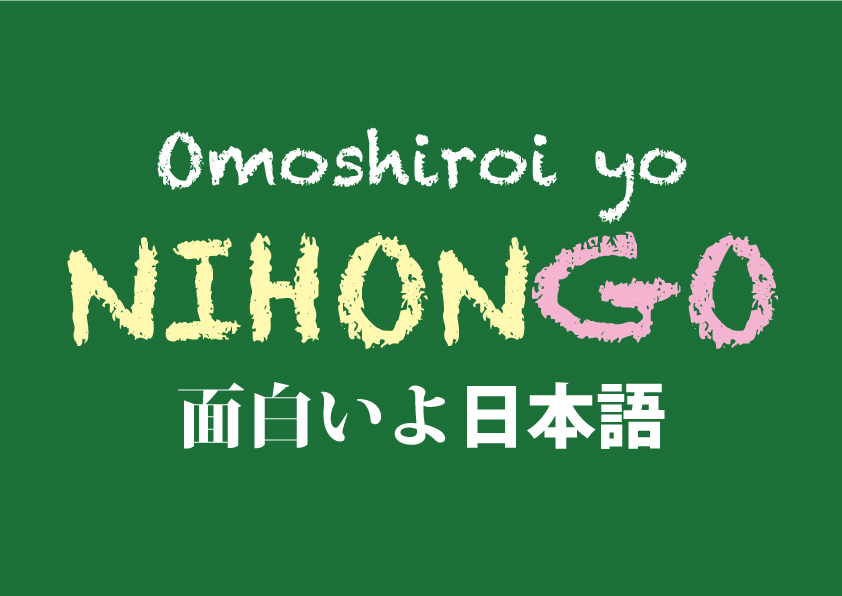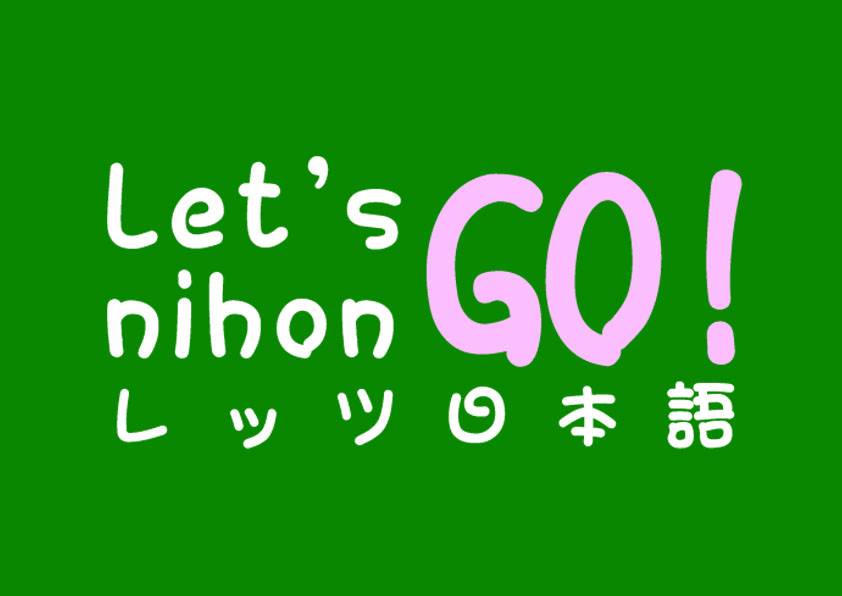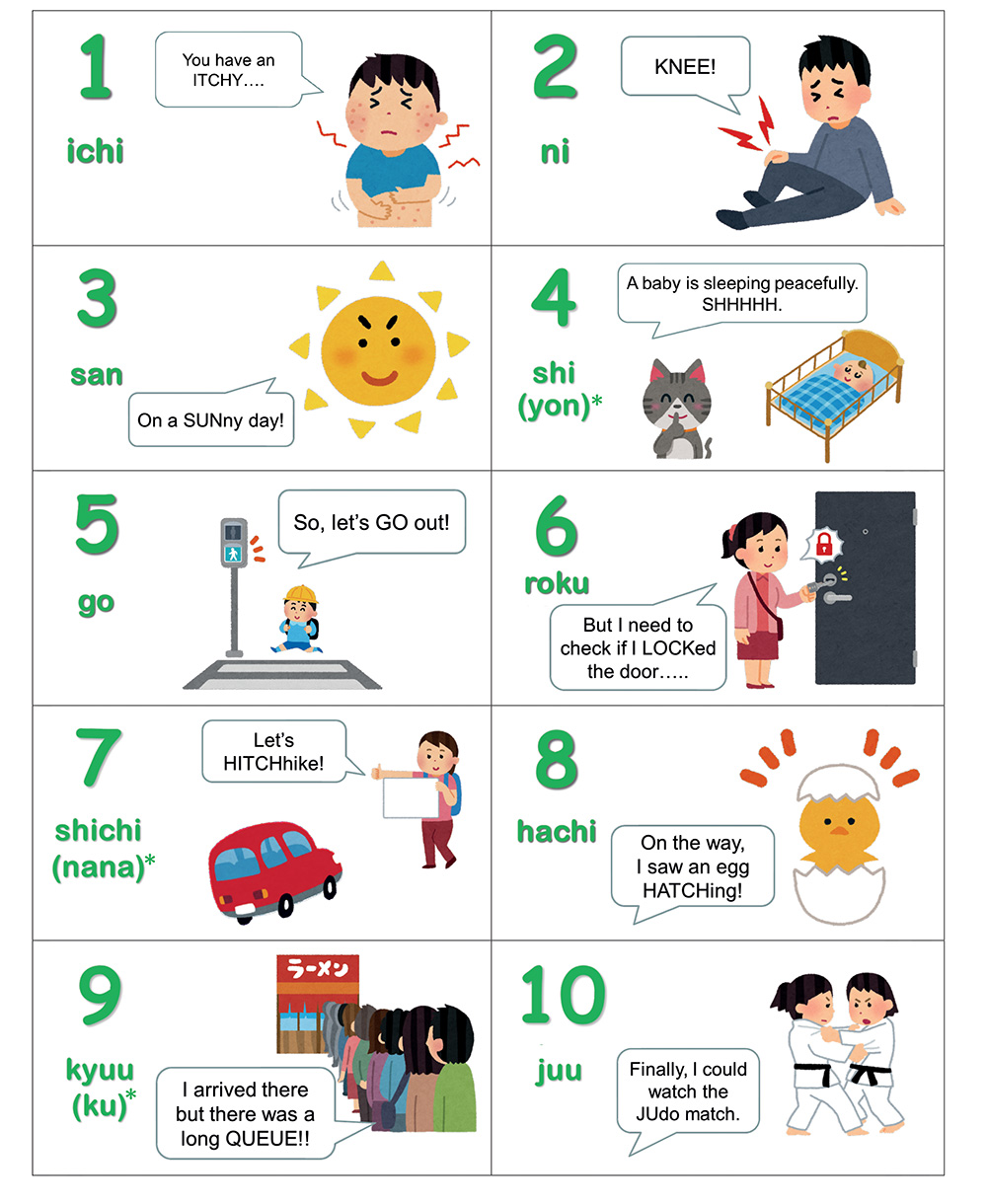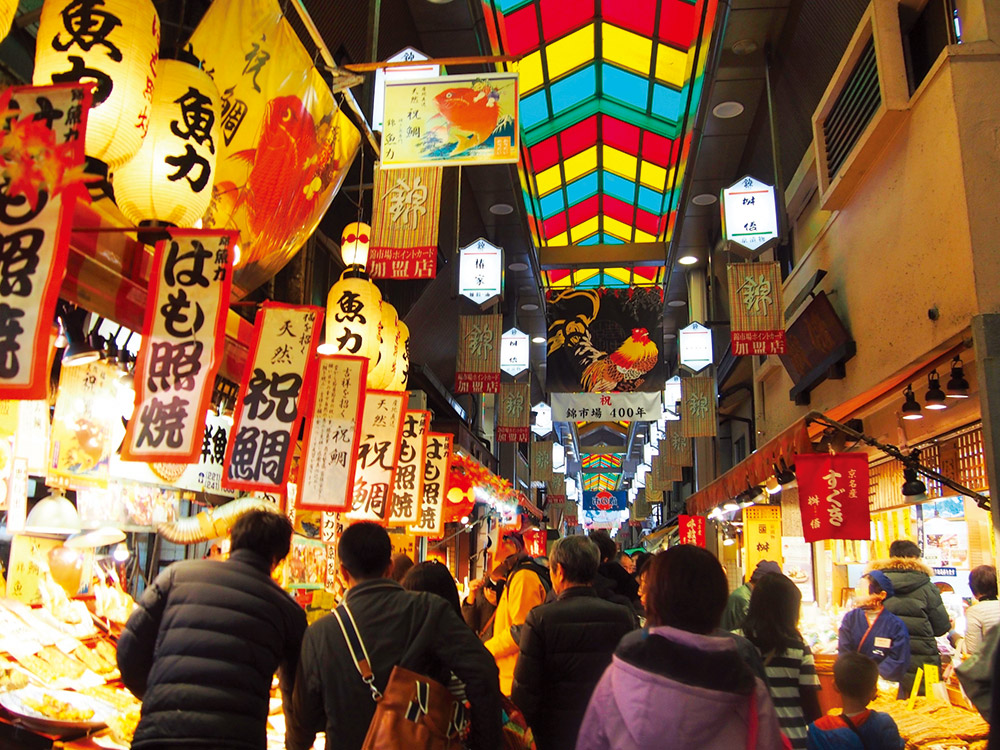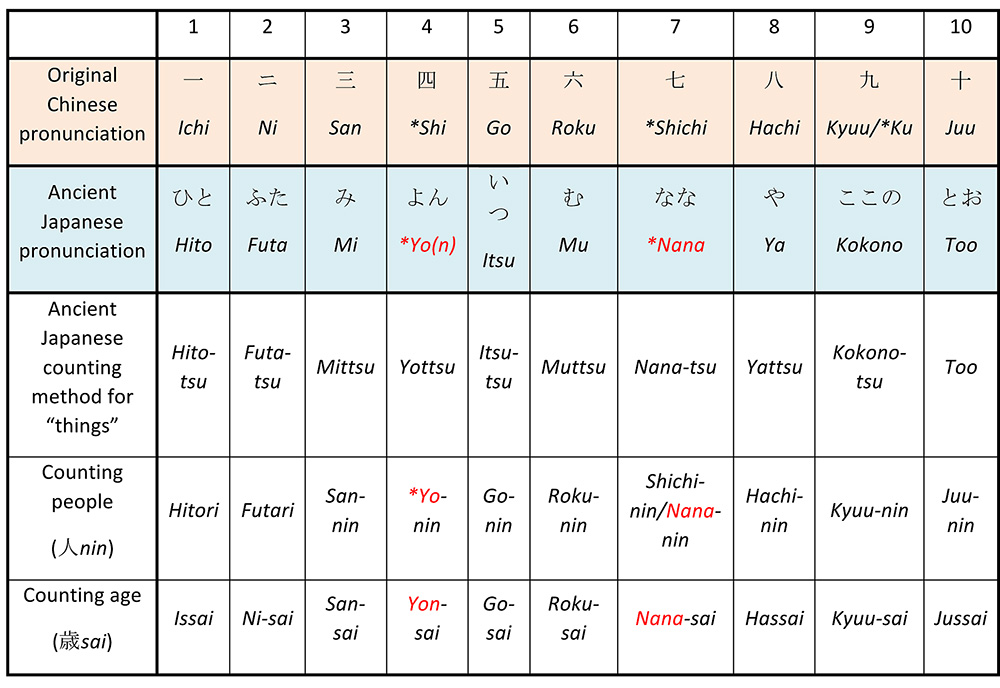

Hello there! This column will include useful Japanese phrases that cover a variety of topics.
Mina-san, konnichiwa! (Hello, every- one!) Have you all mastered 1, 2, 3… 10! (ITCHY, KNEE, SUN… JUdo!)? If you read that sentence and your reaction was “huh?” then please check out last month’s column on counting in Japanese! Now, continuing on from last week’s topic, I’m going to teach you all something interesting about Japanese num- bers. If you read last month’s column, you might have thought, “Wait, why is 4 ‘shi/yon’? Why is 7 ‘shichi/nana’? Why are there two different words for the same number? What’s the difference?” To solve this mystery, let’s look at how to count in Japanese and how to count some differ- ent “things” in Japanese.
“4 (shi)” and “7 (shichi)” are the original Chinese pronunciations, and “4 (yon)” and “7 (nana)” are the ancient Japanese pronunciations. The ancient Japanese number pronunciations (“hito”, “futa”, “mi”… etc) are rarely used these days by themselves when just listing numbers, but have you noticed that the ancient pronunciations for 4 and 7 (“yon” and “nana” respectively), are still used for listing numbers? I can tell that you’re thinking: “…this lack of consistency is really confusing”. But, for example, the original Chinese pronunciation for “1 (ichi)” and “7 (shichi)” sound really similar, and so if you pronounce 7 as “nana”, you can avoid getting mixed up. What’s more, the original Chi- nese pronunciation for “4 (shi)” sounds the same as the word for “death” in Japanese, “死 (shi)”. So when you want to say “four people”, you should say “yo-nin” rather than “shi-nin” – because “死人 (shi-nin)” means “dead people”! So you see, rather than there being a hard-and-fast rule, pronuncia- tion of numerals in Japanese is based on how easy it is to pronounce and how to avoid saying things that could be confused for other words. By the way, because “4 (shi)” sounds like the Japanese word for “death 死 (shi)”, and “9 (ku)” sounds the same as the Japanese word for “suffering 苦 (ku)”, they are considered unlucky numbers, and some- times hospitals or hotels won’t have floors or rooms labelled four or nine.
Right! Let’s leave the difficult stuff for now and go on a little tangent. Did you know that in Japan there are lots of puns (語 呂 合 わ せ goro awase) where you use the different pronunciations of numbers to make words? For example, if you’re Japanese, you’ve got to know the height of Japan’s most famous mountain, Mt. Fuji, right? So a famous mnemonic for remembering that is taken from the pronunciation of the numbers that make up the measurement: 3776 metres → “3 mi 7 na 7 na 6 ro” → “みんななろうminna narou! (“Become a great person” like Mt Fuji, roughly). There are
also jokes like: “please/ I appreciate your help.” → “よろしくyoroshiku” → “4 yo 6 ro 4 shi 9 ku”. We even joke that the 29th of each month is “meat day”: 29 日 (“29th”) → “2 ni 9 ku” (“meat”) → “niku no hi” (“meat day”). I can still remember when I was in primary school, using mnemonics like these to remember my times tables or historical dates. There are also lots of Japanese sayings that use numbers, with pretty deep meanings, so anyone interested should look them up! And so that leads me to say… “3:9” for reading!
Sayoonara, Jaa mata!
さようなら、じゃあまた!
(Goodbye, see you!)
MARIKA.H / MIRIAM. S

check out the numbers in japanese.
https://a2.marugotoweb.jp/en/life_and_culture /topic/8/try/index.htmlp-admin/post-new.php

